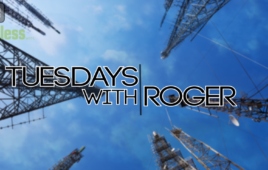Several non-profit organizations have filed an injunction request in Massachusetts state court in an effort to prevent the shutdown of Sprint’s WiMAX network, which is currently scheduled for Friday, November 6.
According to the non-profits’ Friday court filing, the shutdown would see more than a quarter million “vulnerable” Americans lose Internet access currently provided through Educational Broadband Service (EBS) providers Mobile Beacon and Mobile Citizen. The organizations currently provide “unlimited broadband service for $10 per month to 429 schools, 61 libraries and 1,820 nonprofit organizations across the country” on Sprint’s WiMAX network, the non-profits said in a Monday statement.
In 2006, Mobile Citizen and Mobile Beacon, which operate certain Educational Broadband Service channels, signed agreements to lease some of their spectrum to Clearwire in exchange for commercial wireless broadband services for their users. In 2013, Sprint acquired Clearwire, but has failed to live up to the terms of the licensing agreements, the complaint said.
“After assuming control, Sprint decided to shut down Clearwire’s broadband wireless platform, thus taking away Clearwire’s ability to provide these services to Plaintiffs and their users,” the injunction request reads. “At the same time, Sprint is appropriating the commercial spectrum capacity provided by Plaintiffs under contract with Clearwire for use in Sprint’s own broadband wireless network without Plaintiffs’ consent, which is required under Plaintiffs’ agreements with Clearwire. Also, Sprint is denying Plaintiffs the quality and quantity of in-kind access royalties in the form of Internet access accounts (called “Cost-Free Educational Accounts”), user devices and related support on Sprint’s own broadband wireless network required to be delivered under those agreements.”
To prevent a mass disconnection as the WiMAX shutdown moves forward, the organizations behind Mobile Citizen and Mobile Beacon are now requesting that Sprint maintain the network in certain locations for another 90 days so Mobile Beacon and Mobile Citizen have enough time to migrate their users to the carrier’s LTE network.
“The costs of being disconnected are too great,” said Mobile Beacon managing director Katherine Messier. “There are schools that rely on our service as their primary means of Internet access and risk being turned off in the middle of the school year. We’re hearing from disabled adults that rely on our service to order groceries, pay bills, and monitor their prescriptions and medical information online. We are asking the court to preserve their lifeline to the world.”
According to a Sprint spokeswoman, Mobile Citizen and Mobile Beacon are just two of nearly 1,000 EBS licensees the carrier works with. The spokeswoman said Sprint’s partnerships with EBS licensees help it gain access to the 2.5 GHz spectrum for its 4G LTE network in exchange for the aforementioned wireless broadband services for EBS users. The spokeswoman said Sprint has warned for several years of the impending WiMAX shutdown, and has already worked with 85 percent of its EBS partners to transition them to its 4G network.
“Just like the vast majority of these other EBS licensees, Mobile Citizen and Mobile Beacon could have transitioned their services to the new 4G network, but they chose not to,” the spokeswoman said. “We have been attempting in good faith to negotiate with them, work with them and present new resolutions to them for many months now and rather than negotiate a resolution to this private contract dispute they have chosen to not transition their customers.”
The court filing also asks that Sprint cease throttling or otherwise diminishing the level of service provided to the accounts, and instead “maintain all Cost Free Educational Accounts at the same capacity and with the same characteristics as the highest level of premium mass market retail service.”
“Public interest weighs heavily in favor of granting this injunction,” the request reads. “Plaintiffs are nonprofit entities whose constituents rely upon the Plaintiffs for low or no cost Internet service to service students, the elderly, the disabled, and other segments of the population often not able to afford Internet service at the usual and customary fee levels offered by ‘for profit’ providers. If no action is taken, after the Sprint WiMAX network is shut down, an under-served and underrepresented part of the public will be effectively rendered without Internet access….In comparison, harm to Defendants from this injunction will be modest.”
Sprint’s spokeswoman said the last minute injunction request amounts to little more than a public relations scare tactic and said the carrier’s “record of programs to help bridge the digital divide” prove that the company really cares about widespread connectivity.
“We’re not surprised by this tactic, but we’re disappointed that Mobile Citizen and Mobile beacon have failed to act in the best interest of the clients they claim to serve by not responding to our offers over this past year and a half,” the spokeswoman said. “We’re disturbed by many of the claims they’ve made, but we can’t make Mobile Beacon and Mobile Citizen cooperate and do the best thing for their customers. We will continue to look forward to hearing from them and continuing our contractual relationship in good faith.”
The matter is expected to be heard by Suffolk Superior Court on Nov. 3.
This story has been updated to include Sprint’s comments on the case.
Filed Under: Telecommunications (spectrums)




